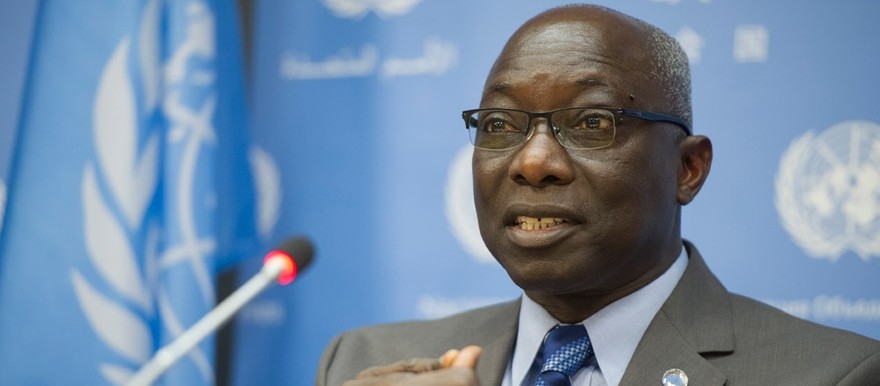The United Nations Special Adviser on the Prevention of Genocide is warning of the danger to civilians should South Sudan be plunged further into conflict, pointing out that hundreds of people have been killed in recent days including civilians seeking refuge.
Adama Dieng, the UN advisor, said in a statement circulated Tuesday that he is deeply concerned at the threat to the populations of South Sudan posed by the renewed fighting.
“Several hundred people have already been killed, including civilians seeking refuge. Some of the civilians killed were reportedly targeted based on their ethnicity. I echo the words of the Secretary-General, who called on President Kiir and First Vice-President Machar to do everything in their power to de-escalate hostilities immediately and ensure the withdrawal of their forces to their bases. If they fail to do so, South Sudan could be plunged back into civil war, at unimaginable human cost,” he said.
Dieng further reminded the government of its responsibility to protect its populations, irrespective of their ethnicity or political affiliation
He also called for the formation of a hybrid court “to prosecute cases of genocide, crimes against humanity and war crimes, as well as well as other serious crimes under international law.” Such a court has been mandated by the August 2015 peace deal, but President Salva Kiir recently announced his opposition to it in an opinion article published in The New York Times.
Adama Dieng stated, “It would be a mistake to think that peace, reconciliation and national healing can be achieved in South Sudan without any accountability for the crimes committed.”
“Amnesty is not an option. Those who oppose accountability could be seen as abetting the atrocities committed in South Sudan by protecting the perpetrators,” he added.




